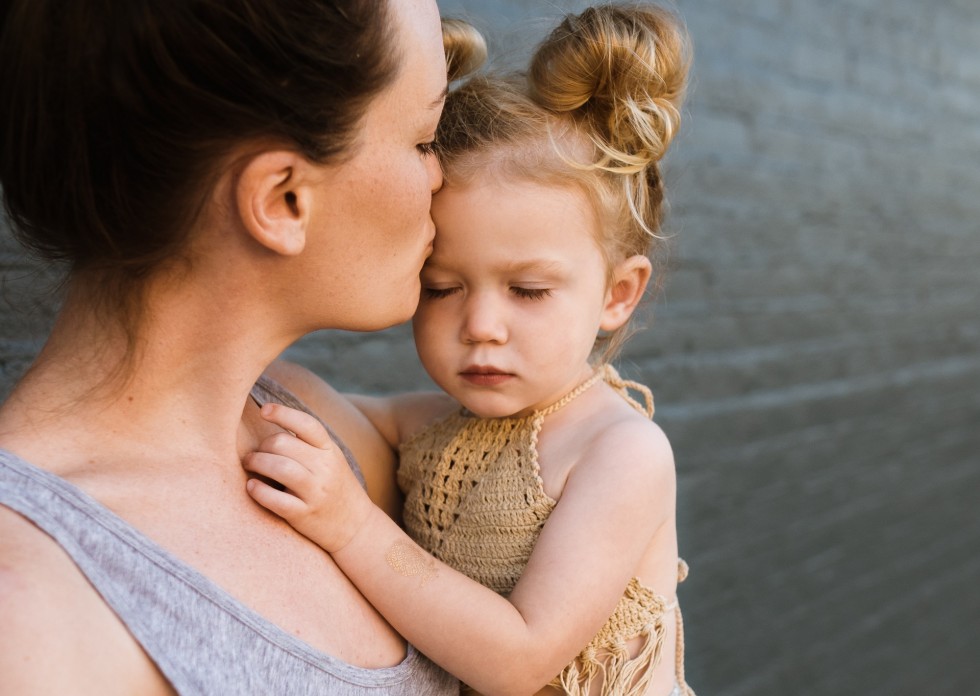Baby blues or postpartum depression?
If having a baby is the most wonderful thing that may happen to a woman in her lifetime, how can I feel so down, worthless, and cry out of nowhere? Where does this freaking postpartum depression even come from? Where is that happiness and love I’m supposed to be overwhelmed with after giving birth to my perfect tiny child? How long these annoying mood swings, bursts of crying and apathy are going to last? Am I already bad mother because I just can’t persuade my body and mind to feel the way the society expects me to perceive the motherhood and experience the all the joys of having a newborn I was so excited to go through? Can I properly take care of a child, who’s totally dependent on me? Do I deserve to be his/her mother? Do I not love my baby?
Those are only a few thoughts and feelings a lot of new mothers have to deal with after having a baby. Actually, it’s proven that up to 15% of women suffer from postpartum depression, and even more mothers of newborns are coping with the so-called baby blues during the first few weeks of their child’s life. However, baby blues are caused by the dramatic hormonal changes the woman’s body goes through after labor and delivery. Those, when paired with the general life adjustments, unusual situations, the load of responsibility that falls onto the new mother’s head, her overwhelming and confusing emotions the fear of doing something wrong to the baby, the process of learning baby care basics, sleep deprivation and the change of family dynamics, may hit a woman really hard and get her mental state out of order for a while.
The baby blues – the sudden mood swings, frequent crying, the sensation of helplessness and depressing emotions towards the motherhood usually go away once the woman’s body is almost healed up after the childbirth, her hormonal balance is established and she gets more and more used to being a mother and confident in her abilities to be a good one. Thus, they’re caused by the natural processes in woman’s body. So, they’re completely normal and tend to gradually disappear within a few weeks after giving birth without any particular treatment.
Postpartum depression, on the other hand, is a much deeper and serious issue (just like any other type of depression) and requires special attention and treatment for it to go away. It’s more dangerous both for the mother and her newborn child, as it messes up the woman’s mind to the extent where she may cause harm to herself and her baby, not mentioning the miserable life she has to live every single day and try to do the best she can to make sure that her child is fed, changed, loved and protected.
The symptoms of this illness include feelings of hopelessness, guilt, worthlessness, low levels of concentration and energy, high irritability, brain fog, fatigue, sleeping and memory troubles, appetite and weight loss/weight, anxiety, pessimism, constant bad mood, the feeling of emptiness, no interest in activities the particular woman previously enjoyed, persistent headaches and stomach issues ordinary medicine fails to cure, suicidal thoughts and (in worst conditions) attempts.
Considering the risks this mental disease imposes on the mother and her child/children and the fact that it’s almost impossible to cure it or to eliminate its effects or the symptoms without any medical intervention, women, who suspect that they have postpartum depression, or the family members, who notice the signs of it in a woman who’ve recently given birth to a child, should immediately get tested by a doctor and seek medical treatment if necessary. That would be in the best interests of both a mother and her newborn child.
At the same time, there’re a few things women who have baby blues or postpartum depression may do to ease up its symptoms and make the treatment process more natural, beneficial and effective.
Here’re a few things you may do to deal with postpartum depression and eventually win the fight with it. (Note: the tips below DO NOT substitute medical treatment, but rather complement it).
Tips to help you deal with postpartum depression
- Slow down. Having a child turns your life into a speedy roller coaster, with the spirally increasing amount of stress, responsibilities, routine chores and miscellaneous things that fill up your day and have to be done. Instead of becoming someone, who chases her own life, make a conscious effort to slow things down and put them under your control. Determining the priorities, pushing aside the things that don’t really matter that much (like, keeping your house clean 24/7), not being hard on ourselves and getting as much rest as possible helps a lot.
- Don’t feel guilty when asking for assistance. Let your husband and family members take over for a while and take care of your baby at least for a few hours while you finish your house chores, take a much-needed nap or get out of the house to spend some me-time. The calmer and happier you feel, the better your child feels. Thus, don’t consider yourself as a bad mother when you leave your baby with a babysitter or your mom to go for a date or simply run your errands on your own.
- Understand the importance of taking a break and talking to someone. Considering how dangerous postpartum depression is, it’s vital to let someone you trust know how you feel and ask for help in time. For that matter, you need to know your emotional limits and be able to call upon your husband, mom, sibling or friend if you feel like you’re about to approach those limits and depression is going to completely knock you over.
- Get out of the house more often. Spend as much time outside as you can. It will take you some time to adjust to your new role and correct your life according to it. However, you need to remember that your child is not your entire life, but an important part of it. The moms who live their lives through their children aren’t the greatest influence anyway. Thus, try to continue living your normal life making your baby a part of it and maintain friendly relations with people you love and care for. Shortly, keep up with socializing.
- Avoid alcohol and caffeine. Those will only worsen your depression, making you feel even more down and stimulate your anxiety. Thus, no red wine before going to bed and decaf lattes for momma.
- Breathe fresh air. It’s an ultimate medicine to numerous illnesses. You might think that you don’t have any time even for a short walk. But, what you can do to actually get out of your house is to wait till your baby’s nap time (right after feeding, for instance) and, instead of putting him to crib/rocker/etc., lay him into the stroller and go for a walk together. Your baby and you will only benefit from that. By the way, a lot of babies tend to sleep in the fresh air a lot better, so a naptime-long stroll may even solve the baby’s sleeping issues.
- Exercise as soon and as much as you’re allowed to. Physical activity is proven to help with dealing with stress and postpartum depression. Even a half an hour stroll outside will do. Working with a personal trainer from HireRush.com following a personalized postpartum fitness program and learning calming techniques will be even better. Leave a training request
- Pamper yourself and spend some me-time. Take a bath with your favorite products, essential oils and calming candles. Go on a date with your husband. Buy something new not for the baby, but for yourself. Visit the friend you haven’t seen for ages. Read a book alone. Whatever sounds good and relaxing – do it. Most importantly, catch up with your sleep, as the absence of thereof and constant exhaustion is a great stimulator of depression.
- Accept the bad mood. Some days you’ll feel better, and some days you’ll feel like all the rains and clouds of the world are yours. Let yourself feel a little bit sad, face the emotion to overcome it faster.
- You’re doing a great job. It’s hard to be a mom, and no woman can claim that she’s a perfect one. You’re the best mom to your child, so don’t give yourself a hard time when you can’t calm your baby down or when you can’t understand what’s wrong with him/her. No one is able to do better, so don’t let your depression tell you otherwise.
Finally, don’t expect immediate improvements. Your depression won’t go away the moment you take a magic pill and make it work even better with the tips above. Set realistic expectations, as you’ll start feeling like your old self one step at a time.





